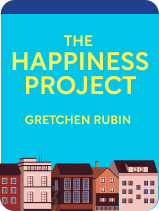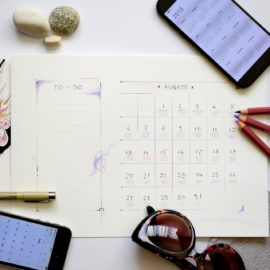

This article is an excerpt from the Shortform book guide to "The Happiness Project" by Gretchen Rubin. Shortform has the world's best summaries and analyses of books you should be reading.
Like this article? Sign up for a free trial here .
Are you looking for The Happiness Project quotes by Gretchen Ruben? How can making small, seemingly insignificant changes to your daily routine help you live a happier, more fulfilling life?
In The Happiness Project, Gretchen Rubin explains how making the smallest changes to your everyday life can translate into more vivid memories, stronger relationships, and a deeper sense of happiness and gratitude in your life. The following The Happiness Project quotes highlight some of her key ideas about cultivating and maintaining happiness.
Keep reading for The Happiness Project quotes by Gretchen Ruben.
The Happiness Project: Quotes and Passages
Studies show that each common interest between people boosts the chances of a lasting relationship and also brings about a 2 percent increase in life satisfaction.
In discussing ways to boost happiness in romantic relationships, Rubin points out the importance of mutual interests between partners. Indeed, research shows that each common interest you have with a person not only increases your chances of having a lasting relationship with them but also boosts your overall life satisfaction by 2%.
Studies show that the quality of a couple’s friendship determines, in large part, whether they feel satisfied with their marriage’s romance and passion, and nothing kills the feeling of friendship (and passion) more than nagging. Anyway, nagging doesn’t work.
Nagging is a tempting habit because it feels that if you do it just enough, your partner will start automatically doing what you want—but it doesn’t work this way. It just creates resentment for both parties.
Commit to holding back whenever you want to nag. If the task at hand is time-sensitive, do it yourself. If it’s not time-sensitive, allow it to happen on your partner’s timeline. This will very likely be uncomfortable for you, and you may feel a bit resentful at the beginning if you need to do tasks yourself or tasks aren’t getting done when you want. But Rubin’s experience reveals that the overall pleasant mood that’s maintained in the absence of nagging far outweighs the initial discomfort of holding your tongue.
“The days are long, but the years are short.”
In discussing ways to bring more happiness into parenting, Rubin empathizes the importance of preserving happy memories. She found three ways to preserve happy memories in a meaningful way for her family.
- Photo albums and keepsake boxes. Put together a photo album, writing notes alongside the pictures to help keep the memories intact. Or, save up some of your children’s drawings and papers from school in a nice file box to create a glimpse of their childhood to look back on.
- Update emails. Send fun updates to your extended family about your children’s everyday lives—lost teeth, funny things they did or said recently, something they did that reminded you of a family member, and so on. This act extends the happiness of your memories to those who didn’t witness the experience but find delight in it all the same.
- Traditions. Traditions are a source of happiness for many reasons—they’re a joyful way to experience passing time; they make families feel more tightly knit; and children love the anticipation and structure they create. Commit to the effort of keeping up traditions—such as schlepping out to a farm to cut down your own Christmas tree, or sewing Halloween costumes—and keep in mind that traditions can be created at any time. Experiment with making your own traditions with your children. For example, you might go out for a nice dinner the night before the first day of school, or have a monthly family movie night.
If you do new things – visit a museum for the first time, learn a new game, travel to a new place, meet new people – you’re more apt to feel happy than people who stick to more familiar activities.
A good way to expand the limits of your leisure is to actively look for new experiences, new ways of thinking, new places, and new connections—all of which may lead you to a new hobby you hadn’t considered, and force you to focus on experimentation and failing. Try these two methods to force a change of perspective.
- Keep an interesting log where you write down everything that captures your interest. Then you can use this information to go on research tangents or look into new activities. You might find your own method such as collecting free maps where you can mark points of interest, or snapping photos of things you want to look into later.
- Purposely encounter unfamiliar information. You might do this by reading sections of the newspaper you usually skip, listening to new podcasts, or looking up at buildings instead of at the ground when you’re walking around.

———End of Preview———
Like what you just read? Read the rest of the world's best book summary and analysis of Gretchen Rubin's "The Happiness Project" at Shortform .
Here's what you'll find in our full The Happiness Project summary :
- How to increase the overall happiness in your daily life
- Why changing everything won't bring you happiness
- How to create your own year-long happiness project






